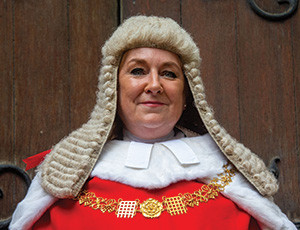*/

Last year, RPC LLP, Next 100 Years and LawCare published Mind the caring gap: exploring the impact of caring responsibilities in the legal sector. The survey report emphasised the importance of supporting those with caring responsibilities in the legal sector.
73% of survey respondents said they had to reduce their working hours and therefore income (if self-employed); and 57% felt that their career progression was negatively impacted due to caring responsibilities.
77% said their mental health and 70% said their physical health were affected by their caring role. This was most true for women who, in addition to their job, were taking on the majority of associated caring responsibilities and the domestic duties that come with looking after loved ones. The relentlessness of being a carer, along with the additional pressures of work, can result in many carers feeling anxious, overwhelmed, sleep-deprived or burning out.
A lack of support was also prevalent in the findings, with 66% of respondents having either unpaid or no support at all. Where support was offered, only 30% of respondents had used this, partly because of time and accessibility, and partly because the support available was not appropriate.
Key recommendations included the following:
The report’s findings are similar to work undertaken by the Western Circuit Women’s Forum (WCWF). In 2019, the WCWF found that most women who left the Bar cited the difficulty of balancing work and family commitments as a factor in their decision to leave. It was overwhelmingly the case in the survey responses that female practitioners had primary care of their children, and primary responsibility for arranging childcare. In the WCWF’s Best Practice Guide for Retention and Progression after Parental Leave, it recommended evidence-based, practical steps which the profession should take to support, retain and promote women at the Bar.
In 2020, the WCWF published Back to the Bar Update: The Impact of COVID-19 – Consider the Carers in response to additional pressures on carers in the wake of COVID-19. The WCWF’s main recommendation to the judiciary, HM Courts and Tribunals Service (HMCTS), specialist Bar associations and chambers was to ‘Consider the Carers’. Specifically, when issuing guidance on new court processes, or ways of working, whether nationally or locally, take into account the practical difficulties faced by primary carers and consider the impact of the guidance on their income.
The WCWF’s suggestions for the judiciary and HMCTS and chambers are shown in the boxes below.
On the Western Circuit, campaigns such as ‘Consider the Carers’ and the implementation of working practice/wellbeing guidance from the courts, appear to be making a difference. Some local practitioners have told the WCWF that they now feel more able to say openly in court if they have any caring commitments, for which they need to be home on time.
There appear to be the beginnings of a greater understanding from chambers and the bench as to the need to try and accommodate carers at the Bar. However, the WCWF is aware that approaches aimed at assisting carers do not occur in every area of law and practices are not consistent across the board. The WCWF, once again, invites HMCTS, chambers, clerks, judges, tribunals and courts to ‘Consider the Carers’.

References
Best Practice Guide for Retention and Progression after Parental Leave WCWF, 2019
Back to the Bar Update: The Impact of COVID-19 – Consider the Carers WCWF, 2020
Mind the Caring Gap: Exploring The Impact of Caring Responsibilities in the Legal Sector, RPC LLP, Next 100 Years and LawCare, 2024

Last year, RPC LLP, Next 100 Years and LawCare published Mind the caring gap: exploring the impact of caring responsibilities in the legal sector. The survey report emphasised the importance of supporting those with caring responsibilities in the legal sector.
73% of survey respondents said they had to reduce their working hours and therefore income (if self-employed); and 57% felt that their career progression was negatively impacted due to caring responsibilities.
77% said their mental health and 70% said their physical health were affected by their caring role. This was most true for women who, in addition to their job, were taking on the majority of associated caring responsibilities and the domestic duties that come with looking after loved ones. The relentlessness of being a carer, along with the additional pressures of work, can result in many carers feeling anxious, overwhelmed, sleep-deprived or burning out.
A lack of support was also prevalent in the findings, with 66% of respondents having either unpaid or no support at all. Where support was offered, only 30% of respondents had used this, partly because of time and accessibility, and partly because the support available was not appropriate.
Key recommendations included the following:
The report’s findings are similar to work undertaken by the Western Circuit Women’s Forum (WCWF). In 2019, the WCWF found that most women who left the Bar cited the difficulty of balancing work and family commitments as a factor in their decision to leave. It was overwhelmingly the case in the survey responses that female practitioners had primary care of their children, and primary responsibility for arranging childcare. In the WCWF’s Best Practice Guide for Retention and Progression after Parental Leave, it recommended evidence-based, practical steps which the profession should take to support, retain and promote women at the Bar.
In 2020, the WCWF published Back to the Bar Update: The Impact of COVID-19 – Consider the Carers in response to additional pressures on carers in the wake of COVID-19. The WCWF’s main recommendation to the judiciary, HM Courts and Tribunals Service (HMCTS), specialist Bar associations and chambers was to ‘Consider the Carers’. Specifically, when issuing guidance on new court processes, or ways of working, whether nationally or locally, take into account the practical difficulties faced by primary carers and consider the impact of the guidance on their income.
The WCWF’s suggestions for the judiciary and HMCTS and chambers are shown in the boxes below.
On the Western Circuit, campaigns such as ‘Consider the Carers’ and the implementation of working practice/wellbeing guidance from the courts, appear to be making a difference. Some local practitioners have told the WCWF that they now feel more able to say openly in court if they have any caring commitments, for which they need to be home on time.
There appear to be the beginnings of a greater understanding from chambers and the bench as to the need to try and accommodate carers at the Bar. However, the WCWF is aware that approaches aimed at assisting carers do not occur in every area of law and practices are not consistent across the board. The WCWF, once again, invites HMCTS, chambers, clerks, judges, tribunals and courts to ‘Consider the Carers’.

References
Best Practice Guide for Retention and Progression after Parental Leave WCWF, 2019
Back to the Bar Update: The Impact of COVID-19 – Consider the Carers WCWF, 2020
Mind the Caring Gap: Exploring The Impact of Caring Responsibilities in the Legal Sector, RPC LLP, Next 100 Years and LawCare, 2024


The Bar Council is ready to support a turn to the efficiencies that will make a difference
By Louise Crush of Westgate Wealth Management
Marie Law, Director of Toxicology at AlphaBiolabs, examines the latest ONS data on drug misuse and its implications for toxicology testing in family law cases
An interview with Rob Wagg, CEO of New Park Court Chambers
What meaningful steps can you take in 2026 to advance your legal career? asks Thomas Cowan of St Pauls Chambers
Marie Law, Director of Toxicology at AlphaBiolabs, explains why drugs may appear in test results, despite the donor denying use of them
The appointments of 96 new King’s Counsel (also known as silk) are announced today
Ready for the new way to do tax returns? David Southern KC continues his series explaining the impact on barristers. In part 2, a worked example shows the specific practicalities of adapting to the new system
Resolution of the criminal justice crisis does not lie in reheating old ideas that have been roundly rejected before, say Ed Vickers KC, Faras Baloch and Katie Bacon
With pupillage application season under way, Laura Wright reflects on her route to ‘tech barrister’ and offers advice for those aiming at a career at the Bar
Jury-less trial proposals threaten fairness, legitimacy and democracy without ending the backlog, writes Professor Cheryl Thomas KC (Hon), the UK’s leading expert on juries, judges and courts